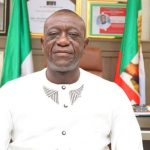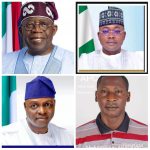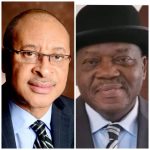DIVIDENDS OF DEMOCRACY: THE NIGERIAN PARADOX .
BY SULEIMAN HUSSAINI D/KUDU .
June 10, 2025
All over the world, democracy enjoys huge patronage for what it preaches and stands for — a government of the people, by the people and for the people. This popular system of government seeks the mandate of the people in state affairs. Thus “the people” are central not only to the government but to the ideals of democracy which it preaches.
Under the Democratic system of government, the people are supposed to enjoy what is popularly referred to as “the dividends of democracy”. By this, it means the people directly and indirectly benefit from what “their government offers. The lives of the people is further enhanced and improved through the provision of basic social infrastructures, the provision of security of lives and property, the provision of quality education, affordable health care system, among many other dividends for the general improvement of the lives of the people.
However, the Nigerian situation is to say the least, a negation of these noble ideals which democracy seeks to foster. For a start, elective positions have become avenues and means for the siphoning of public funds, perpetuation of wanton corruption and a general neglect of the welfare of the very people that vote them to power right from the ward level to the National level. Yet governments continue to deceive the populace by shouting one thing and doing its exact opposite.
For instance, Nigeria seeks to enter the comity of the nations by being among the first twenty economics of the world. Yet the government has failed to provide adequate power— which is a pre—requisite for technological and economic greatness.
Education, which is the bedrock of any modern civilization is hugely neglected. What you see in the streets are millions of school age children who do not go to school and drop-outs. Education is to say the least, unaffordable.
Infrastructures, such as roads, hospitals, public schools are in such a bad shape that one could not agree we are in the twentieth century. Contracts are awarded, re-awarded and its cost inflated to grease the palms of the powers that be.
Yet political appointees accrue to themselves huge salaries, allowances and estacodes that surpasses every thing else one had seen or heared.
The rule of law applies only to the poor. The rich and powerful are above the law. One hears of frauds, corruption and theft cases involving top government functionaries running into billions of naira or dollars. Yet perpetrators are there walking the streets without persecution.
In the midst of all these, where does the poor man stand? What hopes has he in democracy when the naira keeps sliding to the dollar?. How will inflation be tackled? When shall we have a steady power supply? When will the looters of the economy be prosecuted? When accorded its due attention? Questions, Questions and questions.
Finally, the current insecurity situation in the country which has lately attracted international attention and condemnation has exposed our country to international ridicule and mockery. It has exposed the ineptitude, incompetence and decay in all tiers of our leadership. This single issue of internal insecurity has opened—up the plethora of problems that have been left unattended to over many years. As we celebrate democracy day on the 29th of May every year but later 12 June as declared by former president Muhammad Buhari, what is the average Nigerian celebrating? Are we celebrating deterioration in almost all facets of our national lives? All indices of analysis have suggested Nigeria has either stagnated, made stunted growth or as is widely and popularly suggested, made sharp retrogression since independence from the British on the 1th of October, 1960.
AS the whole nation goes on its knees in prayers, the voices of Nigerians are going taint by the day. Because more than having their problems solved, the average Nigerians has more questions to which government has no answer. What remains is only a faint hope that









